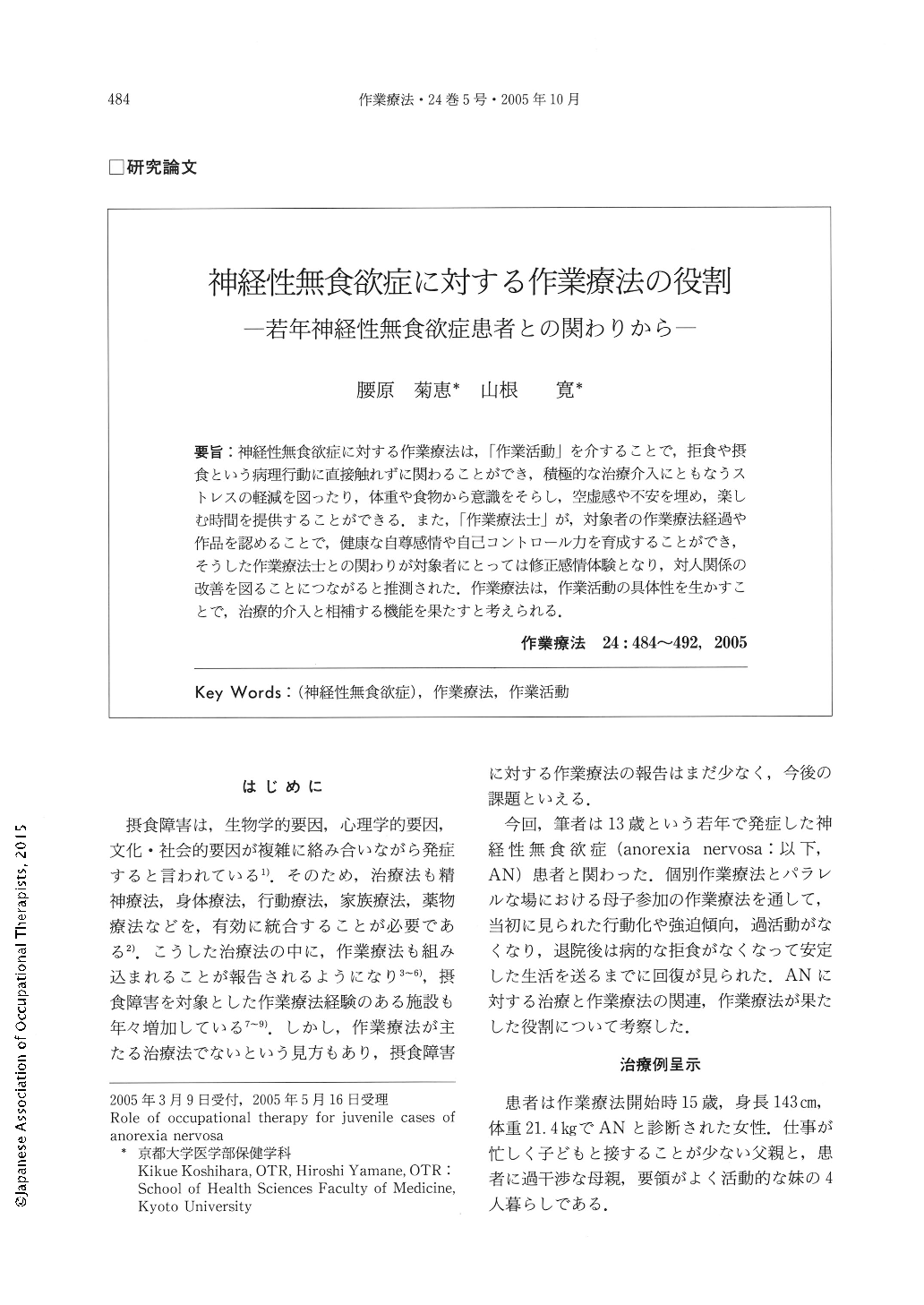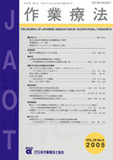Japanese
English
- 販売していません
- Abstract 文献概要
- 1ページ目 Look Inside
- 参考文献 Reference
要旨:神経性無食欲症に対する作業療法は,「作業活動」を介することで,拒食や摂食という病理行動に直接触れずに関わることができ,積極的な治療介入にともなうストレスの軽減を図ったり,体重や食物から意識をそらし,空虚感や不安を埋め,楽しむ時間を提供することができる.また,「作業療法士」が,対象者の作業療法経過や作品を認めることで,健康な自尊感情や自己コントロールカを育成することができ,そうした作業療法士との関わりが対象者にとっては修正感情体験となり,対人関係の改善を図ることにつながると推測された.作業療法は,作業活動の具体性を生かすことで,治療的介入と相補する機能を果たすと考えられる.
Occupational therapy for anorexia nervosa can be applied to patients without intervention to etiology such as food refusal or eating. The role of occupational therapy is to reduce stress associated with treatment. Preoccupation with weight and food is removed by involvement in enjoyable activities. In order to promote self-esteem and self-control, occupational therapists should recognize the patient's progress in occupational therapy and its positive results. The relationship with the occupational therapist should become a corrective/emotional experience for the patient, and should lead to improvement in personal relations. Occupational therapy is therefore considered an effective complementary approach for therapeutic intervention.

Copyright © 2005, Japanese Association of Occupational Therapists. All rights reserved.


